Find Help
More Items From Ergsy search
-

What is Gaslighting?
Relevance: 100%
-
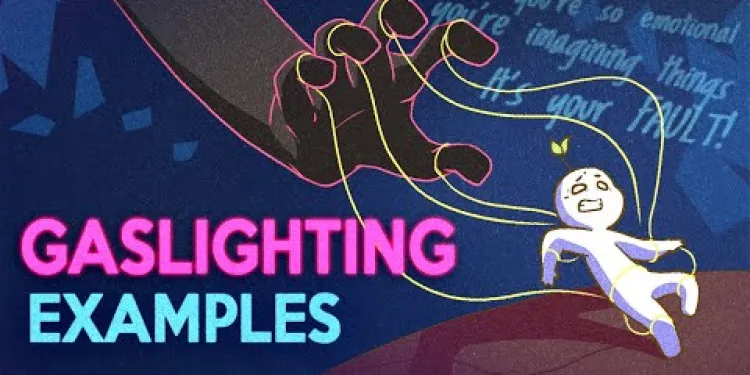
10 Examples of What Gaslighting Sounds Like
Relevance: 86%
-
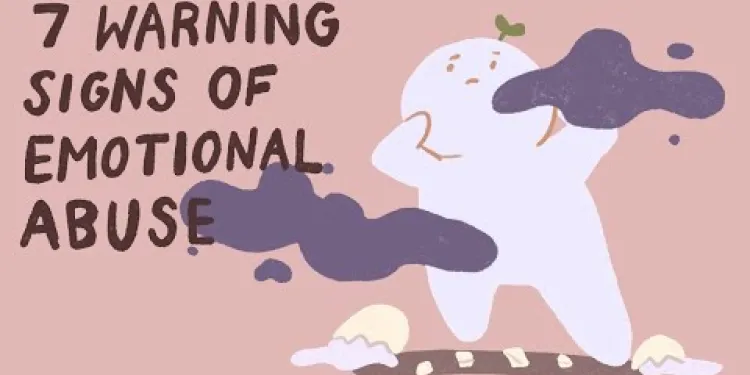
7 Warning Signs of Emotional Abuse
Relevance: 33%
-
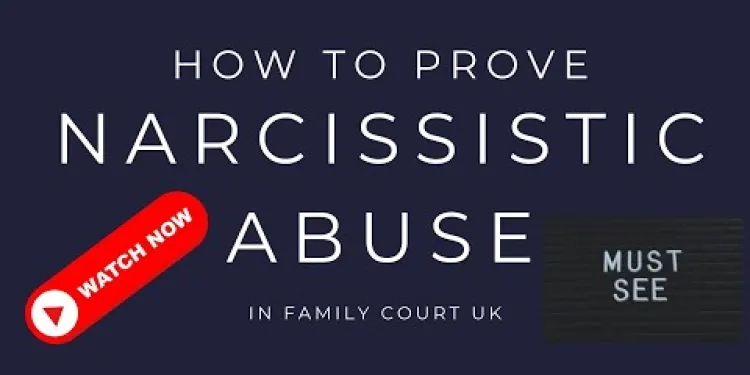
How To Prove Narcissistic Abuse In Family Court UK
Relevance: 28%
-
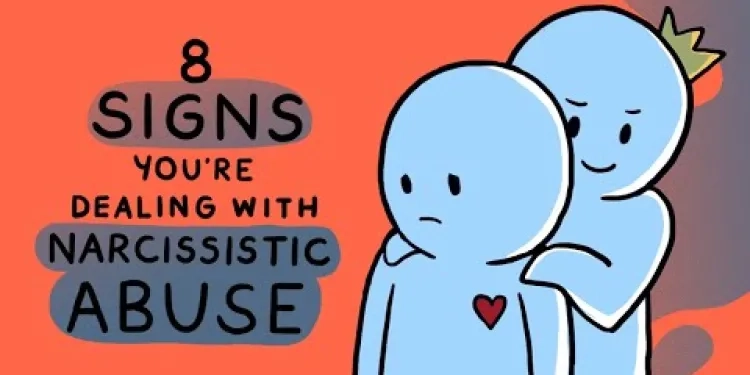
8 Signs You Are Dealing with Narcissistic Abuse
Relevance: 28%
-
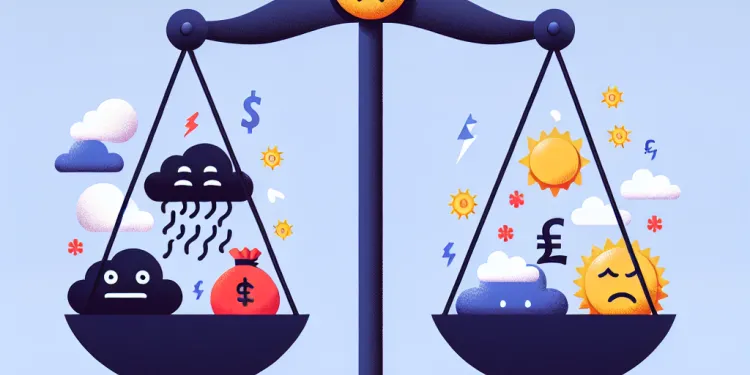
What role do unhealthy dynamics play in causing depression?
Relevance: 12%
10 Examples of What Gaslighting Sounds Like
"You're Overreacting"
Gaslighters often make their victims doubt their own feelings by dismissing their emotions as excessive. This tactic is used to trivialise the victim’s experiences, persuading them to question their emotional responses and thereby weakening their confidence in their reality.
"I Never Said That"
By denying previous statements, gaslighters aim to make their victims doubt their memory. This undermines the victim’s trust in themselves and makes them more reliant on the gaslighter’s version of events, distorting their perception of reality.
"It’s All in Your Head"
This sentence is typical of a gaslighter trying to delegitimise the victim’s feelings or concerns. By claiming that the victim is imagining things, the gaslighter can manipulate them into accepting a false narrative and doubting their own sanity.
"You're Too Sensitive"
When a gaslighter accuses someone of being too emotional, they are attempting to make them feel abnormal for their emotional reactions. This is a calculated move to diminish self-esteem and invalidate their experiences.
"Stop Being So Dramatic"
Labeling the victim as dramatic is an attempt to shame them into changing their behaviour or suppressing their feelings. This form of gaslighting can cause victims to second-guess their emotions and experiences as being blown out of proportion.
"You’re Imagining Things"
This dismissive phrase is frequently used to warp reality and cement control by convincing the victim that they are fabricating events or feelings. It fosters uncertainty and confusion, leading them to trust the manipulator over their own instincts.
"Everyone Agrees with Me"
Gaslighters may try to isolate the victim by falsely stating that others share their perspective. This can compel the victim to conform, fearing alienation or rejection, while reinforcing the gaslighter’s position of authority.
"Why Are You Always Upset?"
Here, the gaslighter shifts the focus onto the victim’s emotional state, implying that their concerns aren’t valid. This serves to obscure any wrongdoing by the gaslighter and turns the conversation towards addressing the victim’s perceived negativity.
"You’re Remembering It Wrong"
Gaslighters rely heavily on this phrase to rewrite events. By sowing doubt about the victim’s recollections, the gaslighter gains control over the narrative, leaving the victim dependent on their version of reality.
"Nobody Will Believe You"
Intended to instil fear and isolation, this threat suggests that if the victim speaks out, they will be ridiculed or ignored. It is a powerful tool used to keep victims silent and maintain the gaslighter’s grip on their self-perception and reality.
10 Examples of What Gaslighting Sounds Like
"You're Overreacting"
Gaslighters say this to make you doubt your feelings. They want you to think your emotions are too much. This makes you question if your feelings are real.
"I Never Said That"
Gaslighters will tell you they didn't say something, even if they did. This makes you doubt your memory and feel confused. You start to trust what they say more than yourself.
"It’s All in Your Head"
If a gaslighter says this, they want you to think you are imagining things. They want you to believe their story and doubt yourself.
"You're Too Sensitive"
When someone calls you too emotional, they want you to feel bad about your feelings. They try to make you feel like something is wrong with you.
"Stop Being So Dramatic"
If someone calls you dramatic, they want you to feel ashamed of your emotions. They want you to stop showing how you feel.
"You’re Imagining Things"
This phrase is used to make you feel like your thoughts are not real. The gaslighter wants you to believe them more than yourself.
"Everyone Agrees with Me"
When a gaslighter says this, they want you to think you are alone. They want you to believe everyone is on their side.
"Why Are You Always Upset?"
This is said to make you doubt if your worries are real. They want to make it seem like you are the problem, not them.
"You’re Remembering It Wrong"
When someone says this, they are trying to change how you remember things. They want you to believe their version of what happened.
"Nobody Will Believe You"
This phrase is used to scare you. It makes you feel like nobody will listen to you if you speak out. It keeps you quiet and trusting the gaslighter.
**Helpful Tip**: If you feel confused or unsure, talk to someone you trust. They can help you see things clearly. Writing down events can also help you keep track of what really happened.
Frequently Asked Questions
What exactly is gaslighting?
Gaslighting is a form of emotional manipulation where someone causes you to question your sanity, perception of reality, or memories. It's often used to gain power or control over someone.
How can I identify gaslighting in a conversation?
Gaslighting may involve tactics like denying things they said previously, lying blatantly, questioning your decisions continually, and making you doubt your own perceptions.
Can you give an example of a gaslighting phrase?
Sure, a common gaslighting phrase might be, 'You're too sensitive,' which is intended to invalidate your feelings.
Why do people engage in gaslighting?
People may engage in gaslighting to control or manipulate others, protect themselves from criticism, or maintain a sense of superiority.
Is gaslighting considered abuse?
Yes, gaslighting is a form of psychological abuse because it seeks to undermine an individual's confidence and self-worth.
What impact does gaslighting have on a person's mental health?
Gaslighting can lead to anxiety, depression, confusion, emotional instability, and a loss of self-esteem for the person being targeted.
How can I respond if I suspect someone is gaslighting me?
You can respond by staying calm, asserting your perception of events, seeking support from others, and limiting or ending interactions with the gaslighter.
What's an example of denying reality in gaslighting?
An example would be if someone said, 'That never happened,' even though you clearly remember the event occurring.
Can gaslighting happen in workplaces?
Yes, gaslighting can occur in workplaces where a colleague or supervisor may undermine an individual's work or dismiss their achievements to destabilize them.
How does gaslighting differ from simple lying?
While lying involves deceit, gaslighting is more insidious as it includes a pattern of manipulation designed to make the victim doubt their own reality.
Are there non-verbal forms of gaslighting?
Yes, non-verbal gaslighting can include dismissive gestures, undermining physical spaces, and controlling access to information.
Can people unintentionally gaslight others?
Some people may gaslight unintentionally by dismissing others' feelings or experiences, but persistent and deliberate gaslighting is often intentional.
What does 'You're misremembering' imply in a gaslighting context?
In a gaslighting context, 'You're misremembering' is used to make you question your memory and doubt your own experiences.
How can therapy help someone who's been gaslighted?
Therapy can help by validating the person's experiences, rebuilding their self-esteem, and providing strategies to recognise and cope with gaslighting.
Is it possible to repair a relationship after gaslighting?
Repairing a relationship after gaslighting requires the gaslighter to acknowledge their behaviour and change, and the victim to heal and establish boundaries.
What is gaslighting?
Gaslighting is when someone tries to make you doubt yourself. They might say things that aren't true. This can make you feel confused. It is important to talk to someone you trust if this happens.
Here are some tips that can help:
- Keep a diary. Write down what happens and how you feel.
- Talk to a friend or family member. They can help you understand what is real.
- Look for information from trusted sources, like books or websites.
Gaslighting is when someone plays tricks with your feelings. They make you doubt if you are remembering things right or seeing things as they are. They do this to make you feel confused and to control you.
How can I tell if someone is gaslighting me in a talk?
Gaslighting means someone makes you doubt what you know or feel. Here is how you can spot it:
- If they say things like, "You're remembering wrong," even when you know you are right.
- If they tell you, "You're too sensitive," when you share your feelings.
- If they change the story and make it seem like everything is your fault.
Here are some ways to help yourself:
- Write down what happened so you can check later.
- Talk to someone you trust about what is going on.
- Stay confident in what you know and feel.
Gaslighting is when someone tricks you and makes you feel confused. They might do this by saying they never said something they did say before. They might lie to you, ask you lots of questions to make you doubt yourself, or make you unsure about what you see and hear.
To help with this, you can:
- Write down what people say so you can remember later.
- Talk to someone you trust about how you feel.
- Use a feelings chart to understand your emotions better.
What is an example of a gaslighting phrase?
A gaslighting phrase is when someone tries to make you doubt yourself. For example, they might say, "That never happened, you're just imagining it." This can make you feel confused or unsure about what you remember.
If you ever feel like this, talk to someone you trust. They can help you understand what is true.
Sometimes, someone might say, 'You're too sensitive.' This is a way to make you feel like your feelings aren't important.
Why do people play mind tricks on others?
Sometimes, people try to confuse or trick others to stay in charge, avoid being blamed, or feel better than others.
Is gaslighting a type of abuse?
Gaslighting is when someone makes you doubt yourself. They might say things that make you feel confused or unsure about what is true.
Yes, gaslighting is a type of abuse. It is not okay for someone to play these tricks on your mind.
If you think someone is gaslighting you:
- Trust your feelings. You know what is real.
- Talk to someone you trust about how you feel.
- Write down what happens to help you remember.
- Look for help from a counselor or support group.
Remember, you are not alone, and it is okay to ask for help.
Yes, gaslighting is a type of mental abuse. It tries to make someone doubt themselves and feel bad about who they are.
How does gaslighting affect someone's mental health?
Gaslighting can make a person feel very confused and upset. It can cause them to doubt themselves and feel unsure about what is real. This can be very hard on their mental health. They may feel sad, worried, or scared because of gaslighting.
Here are some things that can help:
- Talking to someone you trust about how you feel.
- Writing down your thoughts and feelings in a journal.
- Talking to a counselor or therapist for support.
- Remembering that your feelings are important and real.
Gaslighting is when someone makes you doubt yourself. It can make you feel worried, sad, and confused. It can also make your feelings feel up and down, and you might not feel good about yourself.
What can I do if I think someone is tricking me?
If you feel confused or doubt your own feelings, someone might be tricking you. This is called gaslighting.
Here are some ways to help you:
- Talk to someone: Share your worries with a friend or family member.
- Write it down: Keep a diary of events to remember what happened.
- Trust your feelings: Believe in what you feel and think.
- Ask for help: Find a support group or counselor to talk to.
- Take a break: Spend time away from the person if you feel bad.
Remember, it's okay to ask for help. You deserve to feel safe and happy.
You can respond by:
- Staying calm
- Explaining how you see things
- Asking others for help
- Spending less time or stopping time with the person who is being unkind
Ask a friend, family member, or teacher for help if you need it.
What is an example of ignoring the truth in gaslighting?
"Gaslighting" is when someone tries to make you doubt or question what you know is true.
For example, if you say, "I remember you promised to help me," and the other person says, "I never said that. You must be confused," they are ignoring the truth.
Here are some tools or tips to help:
- Write down things that happen so you can look at them later.
- Talk to someone you trust about how you feel.
- Use a computer or phone to keep notes if writing is hard.
Here's an example: Imagine someone says, 'That never happened,' but you remember it did happen.
Can gaslighting happen at work?
Yes, gaslighting can happen at work.
Gaslighting is when someone tries to make you doubt what you know or feel.
It can make you feel confused or that you did something wrong, even when you didn't.
If you think someone is gaslighting you at work, talk to someone you trust.
Writing down what happens and how it makes you feel can help too.
Yes, gaslighting can happen at work. This is when a coworker or boss tries to make someone feel unsure about their work. They might ignore someone's hard work to make them feel bad.
What is the difference between gaslighting and lying?
Gaslighting is when someone tries to trick you into doubting what you know is true. They do this over and over to make you feel confused.
Lying is when someone tells you something that is not true. They might lie once or a few times.
Here are some tips to help:
- Talk to a friend or someone you trust if you feel unsure.
- Write down things that happen so you can remember them better.
- Ask questions if something doesn’t feel right.
Lying means telling something that is not true. But gaslighting is worse. It is a way to trick someone again and again, so they start to question what is real.
Here are some things that can help:
- Talk to someone you trust if you feel confused.
- Keep a diary of what really happens. Writing it down can help you remember.
- Use tools that check facts to help you stay sure of what is true.
Can gaslighting happen without words?
Yes, non-verbal gaslighting can include mean gestures, messing with where you are, and not letting you get the information you need.
Can someone gaslight another person by mistake?
Sometimes, people might make others feel confused or doubt themselves without meaning to. This is called "gaslighting."
Here’s how it can happen by mistake:
- Someone might say things that make you feel unsure about what you remember.
- They might not listen to your feelings and make you think they are not important.
- They could tell you that you are wrong without understanding your side.
If you feel confused or doubt yourself, tell a friend or someone you trust.
Some helpful tools and ideas are:
- Write down what happened to help remember.
- Talk about your feelings with someone you trust.
- Use reminder apps to keep track of important things.
Sometimes, people might not mean to gaslight. They might ignore someone else's feelings or experiences by accident. But if someone keeps doing it on purpose, that's gaslighting.
What does 'You're misremembering' mean in a gaslighting context?
When someone says "You're misremembering" in gaslighting, they mean you are not remembering something correctly.
Gaslighting is when someone tries to make you doubt yourself. They might want you to feel confused.
If you hear "You're misremembering" a lot, talk to someone you trust. They can help you understand what's true.
Using tools like a diary can also help. Write down what happens, so you remember things clearly.
When someone says, 'You're misremembering,' they want you to think your memory is wrong. They want you to feel unsure about what you remember and doubt what you know happened.
How can therapy help someone who has been tricked or confused by others?
Therapy can help in these ways:
- Understanding Feelings: A therapist can help you understand and talk about your feelings.
- Building Confidence: Therapy can make you feel stronger and more sure about yourself.
- Learning to Trust Yourself: You learn how to trust your own thoughts and feelings.
- Getting Support: A therapist listens and helps you feel less alone.
Some helpful tools are:
- Writing in a Journal: Write down your thoughts and feelings.
- Talking to Friends: Share feelings with people you trust.
- Relaxing Activities: Do things that help you feel calm, like drawing or listening to music.
Talking to a therapist can help. They listen to you and say your feelings are important. Therapists can also help you feel better about yourself and show you ways to know when someone is trying to confuse or trick you.
Can you fix a friendship after someone played mind games?
To fix a relationship after gaslighting:
- The person who did the gaslighting needs to say sorry and stop doing it.
- The person who got hurt needs time to feel better and set new rules.
Useful Links
This website offers general information and is not a substitute for professional advice.
Always seek guidance from qualified professionals.
If you have any medical concerns or need urgent help, contact a healthcare professional or emergency services immediately.
Some of this content was generated with AI assistance. We’ve done our best to keep it accurate, helpful, and human-friendly.
- Ergsy carfully checks the information in the videos we provide here.
- Videos shown by Youtube after a video has completed, have NOT been reviewed by ERGSY.
- To view, click the arrow in centre of video.
- Most of the videos you find here will have subtitles and/or closed captions available.
- You may need to turn these on, and choose your preferred language.
- Go to the video you'd like to watch.
- If closed captions (CC) are available, settings will be visible on the bottom right of the video player.
- To turn on Captions, click settings .
- To turn off Captions, click settings again.
More Items From Ergsy search
-

What is Gaslighting?
Relevance: 100%
-

10 Examples of What Gaslighting Sounds Like
Relevance: 86%
-

7 Warning Signs of Emotional Abuse
Relevance: 33%
-

How To Prove Narcissistic Abuse In Family Court UK
Relevance: 28%
-

8 Signs You Are Dealing with Narcissistic Abuse
Relevance: 28%
-

What role do unhealthy dynamics play in causing depression?
Relevance: 12%

